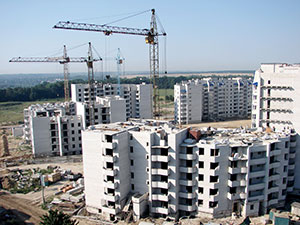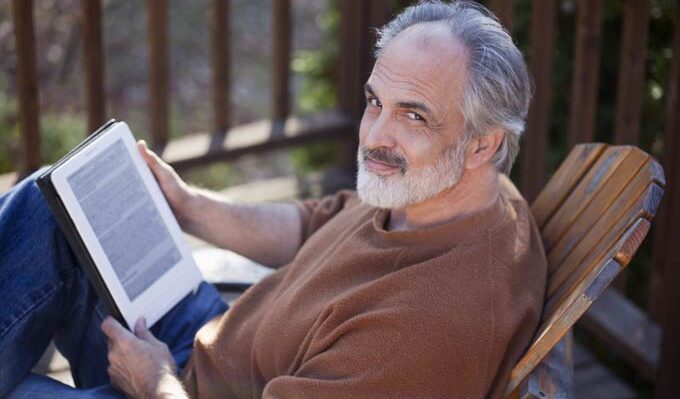Yes, there is COVID-19 – but what about the huge demographic shift from retiring Australian baby boomers and its impact on the Australian property market? Will it lead to the collapse of real estate prices?
Baby boomers have at times been equated with the elephant in the (property market) room. There have been widespread discussions about what may happen when this group sells properties in bulk.
Given that there are 5.3 million baby boomers expected to retire in the next 10-15 years, there should be an impact.
Is it a concern or more of an opportunity for property investors?
Let’s find out.
What is a baby boomer?
A Baby Boomer is someone born in the years following World War II (between 1946 and 1964). The period is known for a sudden increase or ‘boom’ in the world’s birth rate.
Baby boomers make up a sizable portion of the Australian population. Of the 24 million people in the country, about 5.3 million (22%) are between the ages of 55 and 73.
Boomers also currently account for 25% of the total workforce. However, the number is expected to drop to 8% by 2055, by which time many Baby Boomers will have already retired.
Baby boomer characteristics: what made them who they are?

First of all, let me stress that what follows are generalisations. We are looking at baby boomers as a whole group. Many individual cases and stories will differ significantly, of course.
As a whole, our baby boomers contributed a lot to the economy. They grew up in overall peaceful times with significant advances and growth. They developed into smart individuals.
Yes, because boomers saw good life right from its outset, they developed a different kind of attitude towards wealth.
The generation immediately before them had to endure two world wars and a global depression.
This had impact. Compared to previous generations, they were relatively careless with money. With some exceptions, they tended to not look too far into the future.
How did this particular trait turn out to be their greatest undoing?
Australian baby boomers thought retirement is a myth
The answer is simple: they felt that retirement is a time that doesn’t really arrive and thus, they did not do enough to boost their retirement nest egg. This is impacting them now that they know retirement is well and truly a reality and that they are going to be sucked into this reality soon enough. They want to live a decent life after retirement, but unfortunately, many of them do not have enough means to do it.
Australian boomers will have their Supers running out after an average of 8 years
There is reliable research that suggests that on an average, their superannuation money will only last for 8 years. So, what will they do once their last resource is drained? Well, many anticipate the kind of impact a depleted money bag may have on them during their later years. And so they are not planning to retire anytime soon and are willing to work right into their 70s.
Baby Boomers and the property market
What are the specific characteristics of a typical baby boomer with respect to Australian property? Let’s find out.
Australian baby boomers tend to be property-rich
Helped by interest-only mortgage schemes and ever-reducing interest rates, the elderly population has been investing heavily into properties. In an attempt to diversify their investment strategies, they have dug deep into real estate.
Such opportunity has been denied to the first-home-buyers. Most are feeling left out of the housing market, unable to compete with baby boomers who have government initiatives going for them. Boomers also tend to have enough cash savings to pay for upfront costs. To make matters worse, the working population is forced to rent in neighbourhoods where the rent is too high for comfort.
Baby boomers won’t keep their properties indefinitely
All this is good introduction to the baby boomer generation. However, let us focus on how they may impact the property market of Australia in times to come. There is an increasing number of people who feel that Australian baby boomers won’t hold on to their properties forever, and one day, they would want to sell and spend the cash on creature comforts and luxuries of all kinds.
What will such a scenario lead to? Perhaps a severe drop in house prices?
Baby boomers will not have the same impact on Australia as Japan’s ageing population
The fears have penetrated deep within us, at least partially because of our knowledge of what happened in Japan. That country saw a disproportionately high number of retirees surpassing the number of working people, and this impacted the economy badly.
However, this is not expected to happen in Australia, not by a long margin. Why?
Because while Australian baby boomers may be retiring from the workforce, they are healthy enough nonetheless. And immigration has meant a significant influx of younger people into Australia, flattening the age curve.
Australian baby boomers will sell in bulk but their properties will be absorbed
A majority of them do not want to leave the suburb they have spent their last couple of decades in. They want a life close to the people they have formed lifelong relationships with.
This means the impact will not be all that sudden. And when boomers eventually sell and downsize, they will not find it hard to get a buyer.

There is a gang of developers waiting with bated breath for this day to come. After all, it will be their chance of lapping up properties for a reasonable price (Australian baby boomers are typically not the best negotiators) and converting them into modern duplexes, condos, and apartments for our ever growing population. Did I mention immigration?
Ripple effect resulting from mass sale by baby boomers
So, with the entry of property developers into the game, the ripple effect started by a mass sale will probably be nullified.
If a mass sale too many properties into the market and cause a rapid decline in prices, enterprising developers will likely ensure that the same properties hit the market in a new form and sell for a good deal more than they were bought at. It would be easier then to understand how this can mitigate the mass sale pressure on the economy, isn’t it?
Of course, there are still many more factors that need to be considered.
Impact for the “next generation(s)”
What are some of the impacts the baby boomer demographic will have on the generations that follow?
Offsetting income tax losses from retiring boomers
One point worth pondering is the “double whammy” effect baby boomers are going to have on the treasury. They are going to retire en masse, and hence stop paying their taxes.
To make things worse, they will also be expecting a pension and increased public health care system services. The money for which will have to come from current taxpayers.
The government can address this in two ways. One, the taxes levied on an individual will have to increase. This isn’t very likely, given that it is equivalent to political suicide. The second option will be to increase the number of young workers hitting the workforce and through indirect taxes, such as GST.
Given that as long as people spend money there will be GST income for the government, even retirees contribute to the economy more than they used to in the past.
Increasing the workforce can be done through migration. Sydney provides an instance of high net international migration and absorption of a skilled, young workforce. This workforce will ensure that more money enters the government treasury, first through taxes and secondly, through greater cash spending which younger people typically do.
These young people will also want housing (to rent or to buy), and thus they will further balance out the effect of mass sale triggered by the baby boomer generation.
Generation X and Gen Y both buying from the boomers

Gentrification trends clearly suggest that many of us are glued to the capital city lifestyle and don’t want to move anywhere else.
We have departed cleanly from our past where we had this big penchant towards huge suburban mansions. We are quite happy to minimise the size of dwellings but look for options close to the CBD areas of the capitals.
Another interesting concept that has been doing the rounds is rentvesting. Young generations, especially first home buyers, are buying in suburban areas for a reasonable price and living on rent in luxury neighbourhoods.
This trend is likely to keep working and will soak up a good part of properties sold by baby boomers in the suburbs.
What challenges lie ahead for property investors

I am inclined to think that Australian baby boomers will have an unprecedented style of retirement.
Just as they were the ones to live an “adolescence and youth” like no one else, they will live through their retirement years in a never-before seen manner, too.
Property investors will have to anticipate what kind of lifestyle baby boomers will look for.
Only some members of the baby boomer generation feel secure
A part of the baby boomer generation has made ample gains from the property boom. These are the ones who live in large homes, which are in smart locations. It wouldn’t then be wrong to suggest that a fair number of them are cashed up. Their superannuation (those who have got their investment strategies planned well in advance) will only make them more comfortable in years to come. These people will have plenty of choices. It needs to be kept in mind that this generation is also going to live well into their 80s (thanks to increasing life expectancy).
But there is another side to the story. There are unhappy baby boomers who haven’t been able to save enough over their working lives and are looking to work into their 70s, which, after all, are regarded as the new 60s. These people will downsize, not in one big gulp, but in small sips. So, to answer our primary question, the effect of their mass retirement will be diluted.
And we have already spoken quite a bit about how the big number of holiday homes, family homes and investment properties will be absorbed into the property market once the ‘boomers’ call it a day and quietly vanish into the crowd.
Baby boomers opting for unconventional housing options
While there are mammoth opportunities for property investors, it will be wise to take a good look at the direction the baby boomers want to turn. The boomers, as we have already discussed, may bring forth unheard retirement choices on the real estate table. Their downsizing solution may range from the innovative to the bizarre.
I don’t think they will set sail for the closest retirement village or settle into conventional retirement houses. I think that a majority of them will redevelop their existing properties. Such redevelopments will help them ease into an inter-generational living or a single-storey-lifestyle where independence will be the buzzword.
Australian baby boomers are not inclined to run north to the warm climate or the coasts of Queensland. Too many love the capital city lifestyle which is flushed with contemporary amenities and modern day facilities of every kind; transport, wellness spa, hospitals, and so on.
How to invest in property for Baby Boomers

When you invest in a property, keeping in mind the great opportunity at hand, remember the following factors:
Location is crucial
Location will be of prime importance. Baby boomers won’t settle into a village far away from their capital city. Instead, they will seek options in their city, even if it means squeezing their reverse mortgage options, cash savings and superannuation kitty.
Low-rise apartments
They would be keener on settling into the low-rises. I know developers and investors are truly into high-rise apartments. But truth be told, even the best elevator facilities cannot undo the inclination of baby boomers towards low rises and close-to-the-ground homes.
Modern facilities and amenities

Newly refurbished properties with all the modern-day equipment and lifestyle furniture may turn out to be quite a craze with the ‘boomers’. So, next time you think of a property with them in mind, try thinking of an iPhone-oriented LED light recipe or a glass cooktop.
Floor plan
The floor plan is essential. The baby boomers quite like the concept of single level housing. Improvising with split level house design can be a great idea, too. There is no need to rule out stairs but their placement shall in no way hinder the movement of the residents who are well past their 60th year.
Homes catering to both: work life and recreation

Many from the baby boomer generation (and this is the secret I talked about in the opening paragraph) will juggle work and retirement in their 70s. What this means is that they will give half their time to employment and half to recreation.
So, as property investor, you ideally need to focus on homes with home-offices, high speed internet connections and at the same time the ‘therapeutic’ garden or the occasional garden cottage.
Keep their parents or adult children in mind
Also, it will be prudent to remember that our picture of the baby boomers of Australia as an ‘old’ generation is flawed. In some cases, they still have living parents. And these parents, who are expected to be well into their 90s, tend to be really frail. So, homes which have something akin to the granny flat is most likely to serve some of the ‘boomers’ well.
I think that entering the psyche of the boomers is key. Here, we are talking about individuals who have come to terms with their declining physical abilities, and yet are bent on enjoying family gatherings, heterogeneous friend groups and the same life that they enjoyed in their 50s.
Bathroom features and space for relatives
Make sure that the bathrooms have provisions for transfer seats and grab bars, ensure that you build ensuite bedrooms in the first floor in at least 30% of your investment properties and do your bit to guarantee that the parents or adult children in the baby boomers’ home get a space that they can call their own.
Many boomers will also love to have their grandchildren visit.
Baby boomers will keep investors and developers on their toes
Getting armed for the changes that are triggered by Australian baby boomers will be a fresh challenge ahead for property investors.
How well investors take it will not only determine the positioning of their own portfolio but also impact our national economy. There is simply too much money concentrated in the hands of our Australian baby boomers.
It will forever be about quality of life
Wisdom dictates that we should not lump people into some limited demographic category.
Some of them are on the hardworking track and others are working retired. Some have a whole inter-generational family to cater to, while others have a frail parent or an adult child to look after.
Creating a lifestyle situation for them which is in sync with their needs is the right way ahead for property investors.
If I were to advise the developers, it would be along the lines of creating something that meets the recreational and work-oriented lifestyle of the new bunch of retirees. Unless developers and investors are going to look beyond old stereotypes, they are never going to be on the same page with these ‘kids’ born during the Post Second World War baby boom.












